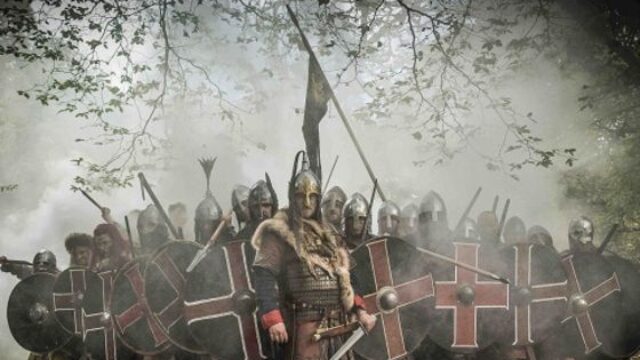Tribalism: A Way of Life Whose Time Has Come

It seems likely that various forms of collapse are in our near future—nuclear war, global overheating, ocean flooding, political dysfunction, civil war, pandemics, the “Great Unraveling”—and that behooves us to contemplate ways of surviving, whether as individuals, families, or groups. Survival, of course, may not be possible, but it would seem wise to hope that it is possible and to prepare for it.
There are professional survivalists among us already, of course, those people who have laid up emergency food kits and built bunkers and such—maybe 150 million according to one survey–and as many as 74 million preppers, those who have made simple preparations to weather a storm or power outage. Those are largely individualists, preparing for themselves and their families, and the serious ones are mostly aiming for self-sufficiency, uninterested in friends, neighbors, or what polity might surround them.
It is the rest of the world I’m concerned with.
For nearly 2 million years the human animal lived in small communities, cojoining extended families, dependent on each other for mutual survival, nomadic, scavenging and foraging, with common property and shared resources, non-hierarchical, with political and economic self-sufficiency. Anthropological evidence suggests that the usual size of such groups—tribes we call them—was around 500, which John Feiffer in the Emergence of Man calls a “magic number” because it recurs so often in scholarly studies from around the world.
That number is important because it’s of sufficient size to provide for a modest self-sufficient economy and polity, probably self-defense. It is larger than a commune, that would be say 20 to 50 people, larger than a “social network” as defined by Robin Dunbar as around 150 people you know well and whose addresses you have. At between 350 and 750, averaging at 500, it lasted so long because it was an efficient size, large enough to satisfy individual and familial needs, small enough to maintain an efficient government and easy resource (food, clothing, fire) distribution. It was, in anthropologist Marshall Sahlins’ words, “the original affluent society… in which all the people’s material wants are easily satisfied.”
A pertinent fact about these eons of tribal existence: it has played, as Justin J. Kennedy has written, a “significant impact on brain function,” or as is fashionable to say these days, humans are “hard-wired” for tribal living. It is a fact of our human neurology no matter how outward conditions have changed, and that inherent longing for group living continues on in that ever-present desire for community that persists in even populous cities today.
Some psychologists have narrowed this down. There is a hormone produced by the hypothalmus in the brain that, in addition to stirring sexual functions promotes social bonding, trust, cooperation, and empathy, and these can be instigated by group conditions. Tribal societies spur the creation of this hormone and obviously contribute to the successful operation of the group. Our brains are specifically wired to group living.
What I am describing here is not the “tribalism” political scientists are talking about these days, by which they mean the tendency of people to prefer the opinions and politics, and media, of one party’s extreme or another. They imply a kind of backwardness of these people, suggesting that they are like the kinds of tribes that lingered into modernity—semi-naked, impoverished, war-like, uncivilized. It has nothing to do with the human condition I am pointing to.
Given the perils we face, then, and knowing what our human nature has fitted us for, might in not behoove us to start now to figuring out how humanity can be divided up and survive the way we once lived for so long. The 14,000 years we have been driven into cities and kingdoms and empires and global supply chains have not changed the reality of our bodies and the basic drives and pleasures that are common to all humanity. It cannot be that hard to create what is natural to our bodies and to our multi-millennial experience.
I feel I must add a note to free-marketers. Of course you have not had a free market for many centuries and it’s unlikely that, even with a diminished state, you would. But it would obviously be anathema in a tribal world, for that economic system is based on mutual “ownership” of resources and unfettered distribution of resources, on a small human scale, and morally forbids individual accumulation of wealth. There is, basically, no market, free or otherwise.
But it still would make for a delightful world.
https://www.lewrockwell.com/2025/06/kirkpatrick-sale/tribalism-a-way-of-life-whose-time-has-come
